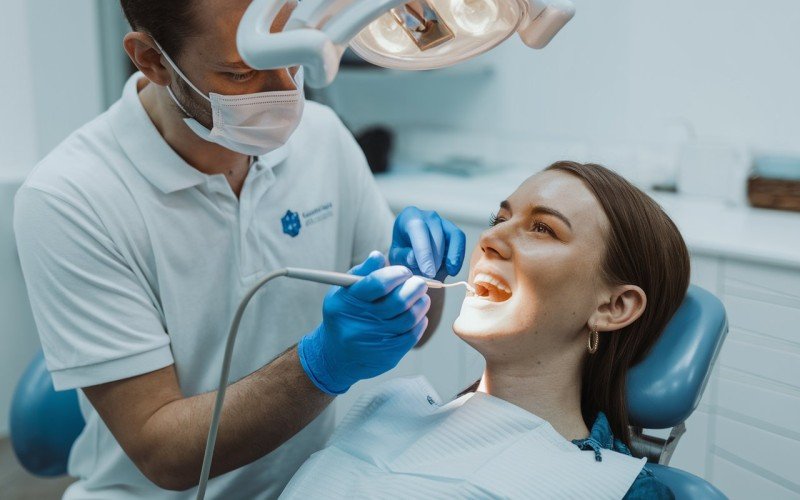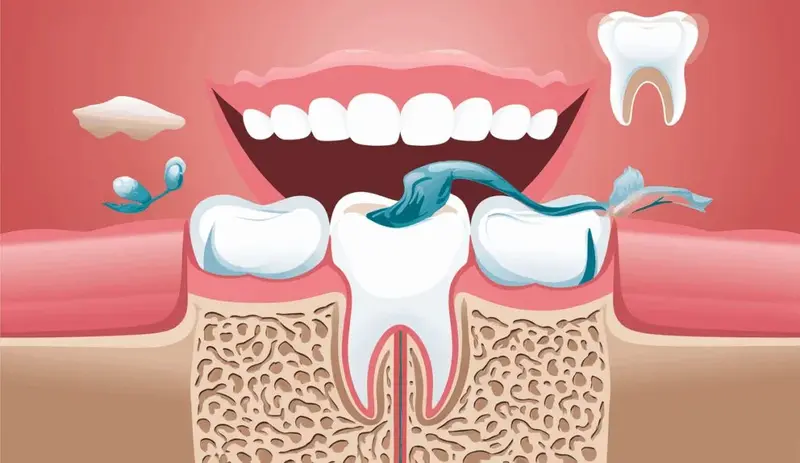
You’ve been wondering about that chipped tooth or those small gaps in your smile. Tooth bonding seems like a quick fix, but you’re not sure how long it’ll actually last. Is it really a permanent solution? Our team at Lifeworks Dental has helped hundreds of patients just like you understand tooth bonding.
We’ll break down everything you need to know about this popular dental treatment in simple, easy-to-understand terms.
What Exactly Is Tooth Bonding?
Tooth bonding is akin to a magic wand for dental imperfections. You can picture a dentist—hopefully your own—skillfully applying a tooth-colored resin that combines, cellularly and molecularly, with your natural enamel and dentin.
The resin is applied in the mouth, not in a lab where one might do whatever necessary to remove and prepare an imperfect tooth for a crown. Instead, tooth bonding “cures” the imperfection when you’re still sitting in the chair, all in a visit that lasts under two hours.
The Natural Look of Tooth Bonding
Tooth bonding’s real beauty is in its natural look. Time and again, we’ve welcomed anxious patients concerned about conspicuous repairs, only to send them away with smiles that are, as far as the eye can tell, completely undifferentiated from the adjacent teeth.
The resin is matched so well with the color and luster of the original tooth that, unless one is psychic, the repaired tooth confers no way of knowing that it wasn’t just another pristine molar we’ve long since forgotten.
How Long Does Tooth Bonding Really Last?
On average, you might expect your bonding to last anywhere from 3 to 10 years. But here’s the crux: how long it lasts depends on a few key factors in Houston, TX and beyond.
These factors include:
• The habits you have every day related to your mouth
• The exact spot in your mouth where the tooth is bonded
• Your promise to keep your mouth very clean and healthy
You May Like To Read: Are Zirconia Crowns Better Than Porcelain?
Best Practices for Maintaining Tooth Bonding
The results are best seen by patients who are mindful. This means:
• Not having hard biting habits
• Having very good oral hygiene
• Going to the dentist on a regular basis at LifeWorks Dental
What Can Damage Tooth Bonding?
You could be astonished to find out how your dental bonding can be affected by daily practices. Some frequently encountered offenders include:
Things to stop doing:
• Ice chewing
• Fingernail biting
• Teeth tool using
Beverages that can cause discoloration:
• Coffee
• Red wine
• Dark sodas
If you’re a smoker, you should be extra cautious—you’ll see faster discoloration than non-smokers, and it’s hard to reverse.
Signs You Might Need Bonding Replacement
Be alert for these signals of impending danger:
• Jagged corners
• Obvious cracks
• Distinct alterations in shade
When the bonding looks like it is wearing out or has a different feel, be sure to schedule a visit to the dentist. We suggest yearly check-ups to keep an eye on your dental work. If you can spot a problem while it is still small, you can save yourself time and discomfort in the long run.
Is Tooth Bonding Worth It?
Definitely! Dental bonding is an amazing way for someone to very quickly and easily enhance their smile. Here are some reasons why patients are so fond of it:
• Inexpensive dental aesthetics option available
• Less direct tooth alteration compared to crowns
• Instant results compared to other aesthetic options
• Dramatically increases overall appearance of smile
For most patients, the blend of immediate change and low cost makes bonding a superb option for slight dental fixes.
Expert Recommendation
To get particular pricing or to chat about whether dental bonding is appropriate for you, we advise reaching out to your nearby dental office near Google Maps. Every grin is one-of-a-kind, and a trained consultation can furnish you with recommendations tailored just for you.
Tooth bonding isn’t forever, but it can be a fantastic temporary solution for improving your smile. Always consult with a professional dentist to understand the best options for your specific dental needs.






